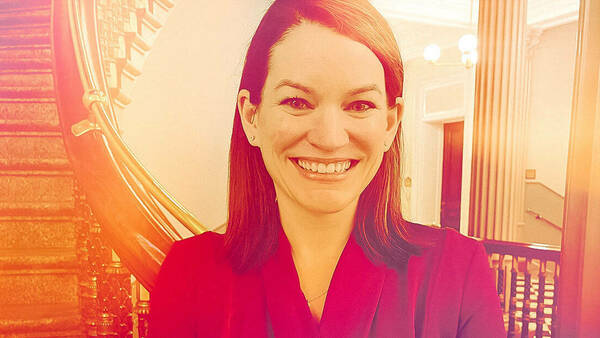Thanks to her parents, Elizabeth Barger Rose ’00 developed an entrepreneurial streak—a belief in innovation and making things happen—and an interest in working with underserved and marginalized young people.
She discovered an outlet for both passions when her father-in-law introduced her to Youth Villages. Drawing on the latest research, the nonprofit provides an alternative to failing state-run programs by using evidence-based approaches to help troubled young people overcome the obstacles they face in their families and social systems.
“Instead of removing problem children from their homes, research shows that kids do better when they can remain at home and when emphasis is placed on helping the whole family,” says Rose, who now serves as a volunteer on Youth Villages’ national board, following in the footsteps of her father-in-law, who has since passed away. “It is a paradigm shift in terms of how we see kids with behavioral and family issues. We believe that the family comes first and that if the family is doing well, the child will do well.”
As a board member, Rose helps Youth Villages with strategic planning, considers potential partnerships, and looks for opportunities for improvement. The organization’s offerings include its Intercept program, Rose says, which focuses on intensive family rehabilitation and parental support that can contribute to healthy, successful adult experiences for older teens who would otherwise fall through the cracks. It invests money upfront in crisis intervention plans that stabilize families and offers support to help them navigate difficulties like a financial crunch or the loss of a job.
“The economics of whole-family services actually ends up costing the state less in the long-term than removing a child and paying institutional residential or detention services,” Rose says.
Youth Villages also offers a Lifeset program that provides ongoing support to help young people who are aging out of foster care and haven’t been adopted. It measures outcomes in three areas: a young adult’s ability to maintain full-time employment; her or his physical and emotional health; and the ability to good decisions and stay out of the criminal justice system.
“When foster kids turn 18, we magically expect them to be full-functioning adults: they are cut loose from all governmental help and rehabilitation agencies, regardless of their ability to adapt and succeed on their own,” Rose says. “But these kids have ongoing needs and their problems continue, just all of a sudden with adult consequences.
Rose appreciates her organization’s willingness to take risks and innovate. She grew up the daughter of an entrepreneur, competed as a swimmer at Notre Dame, and went on to co-found Caiola & Rose LLC, the women-owned, Atlanta-based the law firm where she now works.
“I think that’s parallel to my own life right now—going out and being an entrepreneur,” she says. “My father was an entrepreneur. I feel like many times my parents have encouraged me to take risks and to take a bet on myself. I feel like I’ve had a lot of success in my athletic career and in my professional career because I’ve done things that I’ve never done before. You come to this point where you can either bet on yourself or miss out on an opportunity, and that kind of decision point resonates with me.”
Her volunteer work now also continues her longtime interest in making a difference. As a teenager, she volunteered with children. During her time at Notre Dame, she participated in community outreach initiatives sponsored by the Center for Social Concerns. While earning her law degree, she interned with Emory Law School’s child advocacy clinic, where she helped write policy revisions to the juvenile criminal code, and she also worked for Georgia’s Office of the Child Advocate, an independent auditing body of the state's Department of Family and Children Services.
Ultimately, Rose says, her work to support the mission of Youth Villages and the hard work of the organization’s staff continues to fuel her zeal for youth who have no one else to advocate for them.
“The state gives up on these kids,” she says. “Their families many times give up on them. Serving these kids and being part of something that is changing the trajectory of their lives has been a theme of my life so far. I love being a lawyer, but I feel like Youth Villages will be my life’s work.”
To learn more about the work Youth Villages does to help young people, please visit youthvillages.org.



